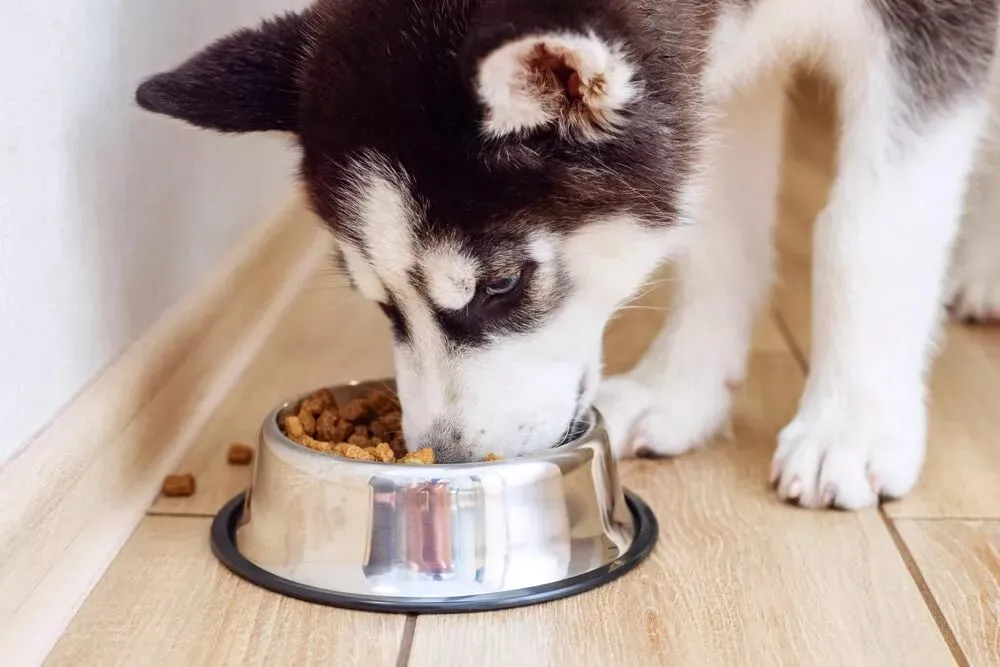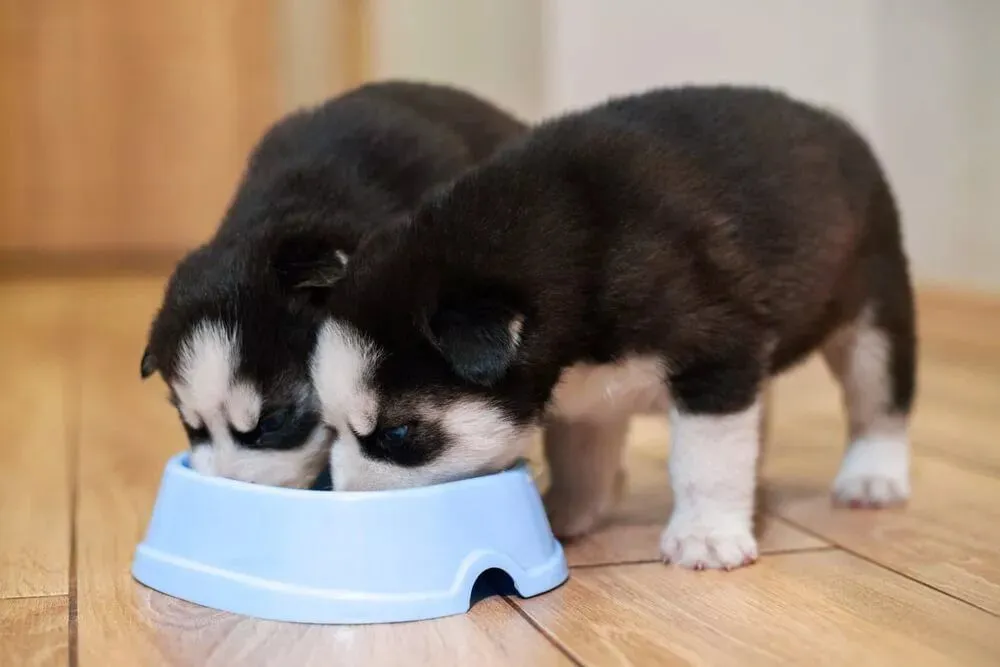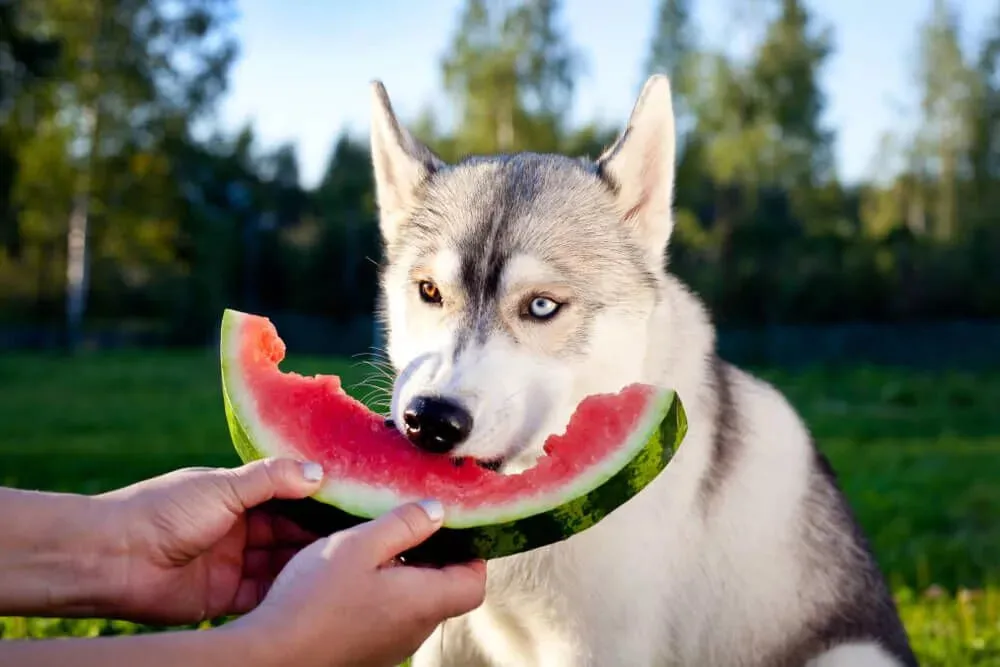Huskies are renowned for their striking appearance, energetic disposition, and adventurous spirit. As a breed celebrated for strength, speed, and stamina, maintaining their vitality hinges significantly on a well-balanced diet. For any Siberian Husky owner, understanding the precise nutritional requirements, optimal food choices, and potentially harmful substances is paramount to ensuring their beloved companion leads a long, healthy, and active life. This guide will delve into what constitutes an ideal Husky diet, drawing insights from their historical roots and covering essential nutrients, beneficial additions, and critical foods to avoid, along with answers to common feeding questions.
What Do Wild Siberian Huskies Eat?
Siberian Huskies trace their origins back to Siberia, where the indigenous Chukchi people relied on them for pulling sleighs and guarding their settlements. As one of the oldest dog breeds in the world, domesticated over 4,000 years ago, Huskies have evolved alongside humans. However, in their natural, wild environment, they are opportunistic feeders. This means they consume whatever is readily available, ranging from discarded scraps and garbage to live prey. Huskies possess a strong prey drive, instinctively hunting, killing, and eating small wildlife. Beyond meat, they also incorporate vegetation, wild fruits, and even the stomach contents of herbivores (like rodents and rabbits) into their diet to obtain fiber and diverse nutrients. It’s crucial to remember that a Husky living as a family pet has different dietary needs than their wild counterparts or those working in the harsh, cold climates of Siberia or Antarctica, primarily due to lower activity levels and less caloric expenditure for warmth.
 Siberian Husky dog exploring in a snowy forest, showcasing its resilience and origin in cold climates
Siberian Husky dog exploring in a snowy forest, showcasing its resilience and origin in cold climates
Understanding Your Husky’s Dietary Needs
Despite being a large and active breed, Huskies often require a comparatively smaller amount of food than other dogs of similar size. The exact quantity needed depends on individual factors such as their specific size, age, and activity levels. Consistent exercise is vital for every Husky, as their naturally slow metabolism means burning off energy helps stimulate their appetite and keeps them healthy.
Pet owners have various options for feeding their Huskies, including high-quality commercial wet and dry foods, carefully formulated home-cooked diets, and raw food regimens. Regardless of the chosen method, any well-balanced and nutritionally complete diet for a Husky must incorporate several key components:
Protein
Huskies thrive on a high-protein diet, predominantly sourcing their protein from meat. Protein is an indispensable nutrient vital for developing a healthy coat and skin, supporting robust muscle growth, facilitating tissue repair, and serving as a crucial energy source. Excellent protein sources include lean meats like chicken, beef, turkey, lamb, and duck, as well as fish. Organ meats and animal by-products such as heart, liver, kidneys, and lungs also offer highly nutritious animal protein. Additionally, certain grains and oilseeds, like soybeans, can contribute to their protein intake.
 Close-up of a healthy Siberian Husky eating from a bowl, highlighting the importance of a protein-rich diet for muscle development
Close-up of a healthy Siberian Husky eating from a bowl, highlighting the importance of a protein-rich diet for muscle development
Fat
Fats and oils are a necessary and beneficial part of a dog’s balanced diet. They represent a concentrated form of energy, providing more than twice the energy compared to carbohydrates and proteins – a critical factor for fueling a Husky’s boundless energy! Beyond energy, fats play a pivotal role in maintaining the health of your dog’s cells, nerves, muscles, and tissues. They also aid in the absorption of crucial fat-soluble vitamins: A, D, E, and K. Fats are composed of building blocks called fatty acids. Essential fatty acids, such as omega-3 and omega-6, are those that dogs must obtain from their diet because their bodies cannot synthesize them. Common sources of omega-3 fatty acids include fish oils (like herring and salmon), flaxseed, and canola oils. For omega-6 fatty acids, sources often include pork fat, chicken fat, sunflower, and other vegetable oils.
Carbohydrates
Carbohydrates, found in ingredients such as grains, potatoes, tapioca, and legumes, serve as valuable energy sources for dogs. These are generally safe for Huskies unless your dog has a known dietary intolerance or sensitivity. While dogs are primarily carnivorous and can derive much of their energy from proteins and fats, carbohydrates can effectively provide an additional energy boost to their diet, supporting their active lifestyle.
 Variety of fresh fruits and vegetables safe for dogs, including apples, blueberries, carrots, and broccoli, essential for a Husky's vitamin and mineral intake
Variety of fresh fruits and vegetables safe for dogs, including apples, blueberries, carrots, and broccoli, essential for a Husky's vitamin and mineral intake
Fruits and Vegetables
Fruits and vegetables are excellent sources of dietary fiber, which is crucial for maintaining a healthy gastrointestinal system in your Husky. Foods rich in fiber can help prevent common issues and certain diseases like diabetes, obesity, constipation, and colitis. Furthermore, these natural additions are packed with essential vitamins and minerals, contributing significantly to keeping your canine companion fit, healthy, and full of vitality.
Overall, Huskies are typically considered easy-to-feed dogs, not generally known for fussiness or specific breed-related dietary intolerances. They require a high-quality, protein-rich diet to sustain healthy muscle mass and provide sufficient energy for their active nature. While supplementing your Husky’s diet with home-cooked or appropriate human foods can offer variety and additional nutrients, relying solely on a complete home-cooked diet is often discouraged without expert veterinary guidance, as it can be challenging to ensure it contains all the necessary nutrients your dog needs. It’s also important to remember that your Husky’s nutritional requirements are likely to evolve with their activity levels, age, and life stage, necessitating potential dietary adjustments throughout their life.
Frequently Asked Questions About Husky Diets
What are the best foods to feed a Husky?
Huskies require a nutritious diet that is high in protein, providing ample energy for their active lifestyle and supporting robust muscle and bone development. There isn’t a single universal agreement on the “best” diet, as many Husky owners successfully use a combination of commercial wet and dry dog foods, raw food, and carefully prepared home-cooked options. To supplement their diet, fresh meats such as chicken, beef, lamb, or fish are excellent sources of high-quality protein and can also double as highly motivating training treats. Additionally, various vegetables like broccoli, carrots, asparagus, and bell peppers, along with fruits such as bananas, blueberries, apples, blackberries, and apricots, can be safely incorporated into your Husky’s diet to add variety and ensure they receive essential vitamins and minerals.
What should Huskies not eat? (Toxic Foods)
Certain foods are potentially toxic to all dogs and must always be avoided when planning your Husky’s diet. These dangerous items include:
- Grapes, Raisins, and Prunes
- Chocolate
- Coffee
- Avocado
- Onions
- Garlic
- Citrus fruits
- Stoned fruits (e.g., cherries, peaches, plums – the pits contain cyanide)
Why do Huskies eat their own fur?
There are several potential reasons why your Husky might eat its fur. If you are uncertain about the cause or are concerned that your dog is excessively grooming, it is always best to consult with your veterinarian. Itchy skin conditions, such as allergies or parasite infestations, can lead to excessive scratching and licking, resulting in your dog chewing and ingesting fur. Beyond medical reasons, behavioral issues like boredom, frustration, or separation anxiety can also trigger overgrooming. While it is normal for dogs to lick themselves clean and ingest some fur during this process, excessive grooming, biting, or chewing at their fur is not typical behavior and warrants investigation.
Why do Huskies eat grass?
Eating grass is an instinctive behavior observed in many dogs, mirroring similar habits seen in wild canids and wolf ancestors. Dogs often seek out roughage in their diets, and grass serves as a natural source of fiber. This fiber aids in digestion and helps facilitate the normal passage of stools, contributing to their overall gastrointestinal health.
Why do Huskies eat their own poop? (Coprophagia)
The scientific term for this less-than-appetizing habit is coprophagia. While it can be an undesirable trait in our canine companions, it can sometimes be a normal behavior, or it might signal an underlying illness or deficiency. It can also be a learned behavior that dogs repeat to gain attention or because they derive some nutritional value from undigested matter in the feces. If this is a new behavior for your Husky, and they are also exhibiting other signs of illness such as weight loss, vomiting, diarrhea, or a reduced appetite, it is crucial to seek veterinary advice promptly to rule out any health concerns.
Ensuring your Husky receives a meticulously balanced and appropriate diet is fundamental to their overall well-being and active lifestyle. By understanding their unique dietary needs, providing a variety of safe and nutritious foods, and strictly avoiding harmful substances, you empower your Husky to thrive. Always consult with your veterinarian for personalized dietary recommendations, especially if your Husky has specific health conditions, allergies, or unique nutritional requirements.
